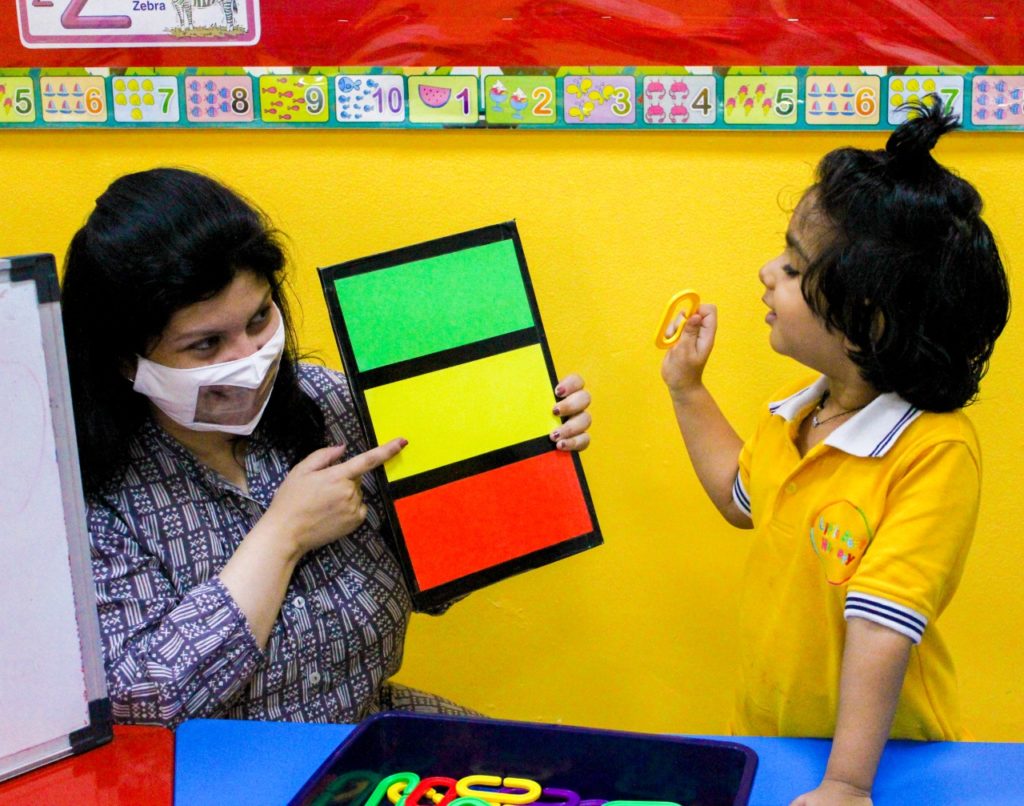Children’s brains develop the fastest in the first 5 years of their lives, compared to development later in their lives. The brain of a child can create up to 1 million neural connections every second through these 5 years. With that speed, 85- 90% of the child’s brain develops by the age of 5 years.
As this is such a fragile and vulnerable growing stage, children up to 5 years of age are completely dependent on adults and parents to fulfill their needs for healthy development. The experience that we provide them at such an early age will have lasting impact on their health and abilities to perform in life. These experiences, positive or negative, can shape their brain development depending on the treatment they receive.

Parents and adults who act as caregivers of the child have the important role of responding to the little one’s needs by giving them the attention they require to grow. These small acts allow the child to explore the physical world around them as well as give them confidence of being in a safe, stable, and nurturing environment.
Five fundamental elements are necessary for the upbringing of a child. Such elements include Connecting, Talking, Playing, living in a Healthy home, and Belonging to a community. By incorporating all these five elements into the daily life of a growing child, the brain is assured to reach its full potential. Science has proven that a technique called “Serve and Return” allows the child to attain basic life skills and abilities of imagining and empathizing. Simple actions like talking to a child can help their vocabulary as well as improve their attention span. A game of “Peekaboo” can greatly enhance the little one’s memory and build trust through the fun motions.
Other ways to ensure a healthy lifestyle for your child is to provide them with brain stimulating play experiences such as putting together puzzles, scribbling, cutting, or tearing paper, and stringing beads. These activities aid in sculpting their motor movements and eye to hand coordination which helps in development of neurons in the brain.
Let’s explore the impact, a child would face if he or she had gone through an unhealthy growth. Children until age of five act on instinct by seeking out meaningful connections, therefore a child can suffer from stress and confusion if the required attention and comfort is missing. If the parent or caregiver fails to cater to the needs of their child during the first five years, noticeable difference in terms of actions and behavior can be observed. Studies have shown that a neglected young child will hold onto deep-rooted trauma that can damage their emotional intelligence, emotional development, and social skills.
Furthermore, the child would exhibit behavioral issue, low self-esteem, harsh insecurities, and poor mental health conditions which can lead to depression at a tender age. As teenagers and adults, these same children can fall victims to addiction and harmful coping mechanisms to fill in their missing needs, especially if no action is taken against the emotional and psychological harm that had been inflicted on the child while they were growing up.
Maintaining valuable connections, engaging in physical activities, and actively communicating with your young ones are a few of many more fundamentals that are needed for a healthy development. For those reasons, it is necessary to be mindful of the first 5 years of your growing child, as this phase can ultimately define their performance in life as they gracefully grow. Hence sending a child in a preschool where there is a lot of individual attention and bonding is done by experienced caregivers and early education experts in a cozy and homelike environment is vital and essential for your child’s healthy upbringing.






